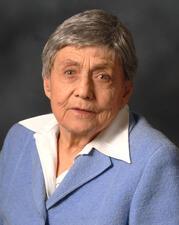Politics and Government
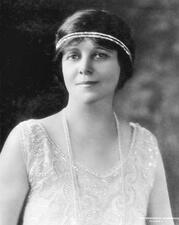
Sophie Irene Simon Loeb
At a time when widowed mothers often had no way to support their children, Sophie Irene Simon Loeb helped create support systems for needy children and their mothers. Loeb was one of many women to enter the political arena through reform work, using her life experience and a personalized approach.
Sadie Loewith
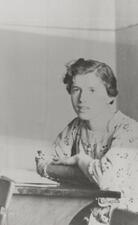
Hildegard Löwy
Born in 1922, Hildegard Löwy was the youngest member of the Baum Gruppe, a mainly Jewish resistance group against the Nazis. She had firm Zionist and pacifist principles and believed communism was the best way for Jews to obtain equal rights. Arrested in April 1942, Löwy tried to escape from prison but was ultimately convicted of Communist treason and executed in a Berlin prison.
Fannie Eller Lorber
When her community became a mecca for adults suffering from tuberculosis, Fannie Eller Lorber created a Jewish children’s home for those who had no one else to care for them. Lorber epitomized the volunteer spirit of urban Jewish women in the American West.
Frieda Lorber
Frieda Levin Lorber made a name for herself as a prominent lawyer in the mid twentieth century and helped other women rise in the profession in New York and worldwide.
Minnie Dessau Louis
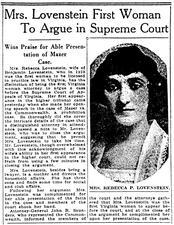
Rebecca Pearl Lovenstein
In 1920, Rebecca Pearl Lovenstein became the first woman lawyer allowed to practice in Virginia. She went on to create a state bar association for women.
Minnie Low
Known as the “Jane Addams of the Jews,” Minnie Low was a leader in the Jewish social service community. At a time when social work usually meant wealthy people donating to the poor, Low pushed for new kinds of aid such as vocational training and loans that made the needy self–sufficient.
Johanna Löwenherz
Johanna Löwenherz traveled widely on behalf of Germany’s socialist women’s movement, raising consciousness and lecturing on the social, economic, and legal equality of women. She became one of the most active representatives of the SDP in the Neuwied region, elected as a delegate to three regional party conferences.
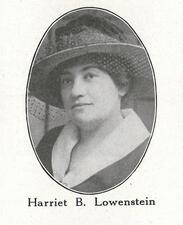
Harriet Lowenstein
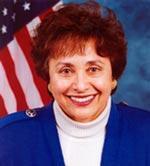
Nita M. Lowey
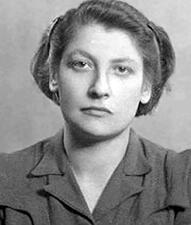
Zivia Lubetkin
Zivia Lubetkin was an important member of the underground resistance movement in Poland during World War II, and later an active member of the United Kibbutz Movement in Palestine.
Esther Luria
Esther Luria was a freelance journalist whose work appeared in many politically left-of-center Yiddish publications in the early twentieth-century United States. A socialist, a feminist, and a political activist, she was also an educator. She used her columns not only to advocate for the ideas in which she believed, but also to provide her mainly east European immigrant readers with a better understanding of their new environment.
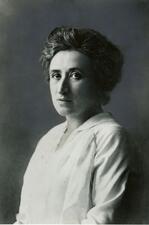
Rosa Luxemburg
Rosa Luxemburg was a socialist revolutionary known for her critical perspective. Born in Poland, Luxemburg had become an important figure in the world socialist movement by 1913. She argued against Lenin’s hierarchal conception of party organization, and against revisionism. Luxemburg was internationalist in orientation and unflinchingly dedicated to a radical democratic vision.
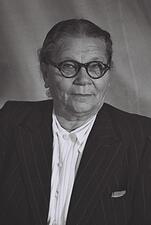
Ada Maimon (Fishman)
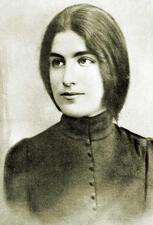
Hannah Maisel-Shohat
Combining her zeal for the Zionist movement and her extensive education in agriculture, Hannah Maisel-Shohat dedicated herself to the establishment of women’s farms and agriculture education programs in Palestine in the 1920s.
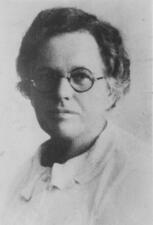
Sarah Malkhin
Sarah Malkhin was among the first women agricultural laborers to arrive in Palestine during the the Second Aliyah. Through efforts to establish new kinds of agricultural settlements founded on ideals of emancipation and independence, Malkhin and her colleagues clashed with veteran settlers of the Old Yishuv.
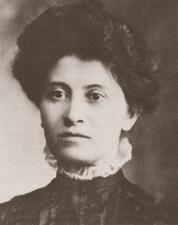
Theresa Serber Malkiel
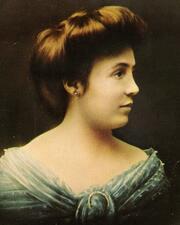
Lane Bryant Malsin
Judith Pinta Mandelbaum
Judith Pinta Mandelbaum was an important part of the Mizrachi Women’s Organization of America (American Mizrachi Women) from the 1930s until shortly before her death in 1977, by which time the organization was known as AMIT. She also achieved professional acclaim as an outstanding teacher and is remembered fondly as a woman with a wonderful sense of humor and a rich family life.
Emma B. Mandl
Emma B. Mandl immigrated to the United States at age fifteen and helped found the Baron Hirsch Women’s Club, a major Chicago philanthropic organization. Through the club, where she served as president, Mandl created and led vital institutions for Jewish East European immigrants in Chicago, from orphanages to trade schools to tuberculosis wards.
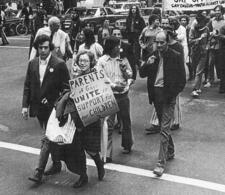
Jeanne Manford
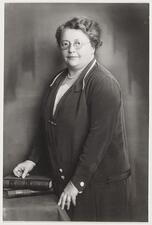
Rosa Manus
Rosa Manus was a Dutch leader in international women’s movements for suffrage and equality, as well as a vocal pacifist before and during World War II. As a Jew, she at times clashed with other feminist leaders.
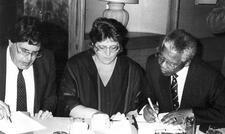
Gill Marcus
